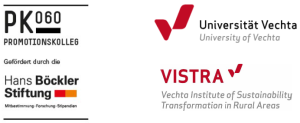2nd CES “Critical Economics” Summer School
Environmental Values and Public Policies
Lousã (Portugal), 12th-15th of July 2011
The CES “Critical Economics Summer School”, launched in 2009, brings together in annual meetings economists and other social scientists to discuss topics of shared interest. This series of summer schools aims at promoting a forum for critical research on the economy and in economics. The school is primarily intended for PhD students and post-doctoral researchers as well as young scholars.
This second edition of the Summer School is devoted to analyze how the growing relevance of environment, recognized as a “good” and as a “problem” of our societies, challenges public policy instruments and procedures that allow government policy on environmental issues to be made material and operational. These instruments and procedures are significantly relying on economic theories and expertise. The creation of environmental markets is one clear example of the importance of economic theory in shaping societal answers to the environmental crisis. The problem with economics applied to the environment is that economics has a specific and limited definition of the value of the environment. Through exploring the dimension of environmental value pluralism with insights coming from sociology and philosophy, we want to discuss the limits of existing economic instruments and procedures and explore alternative pathways (included conflict and participation) allowing for the taking into account of the various ways in which environments matter to people and to their communities.
The speakers will be invited to discuss three main topics:
- Environmental values and valuation | We are interested in exploring economic valuation as one of the possible ways to value the environment. Philosophical and sociological approaches to the issue of the plurality of forms of valuing environment are here discussed. We are interested as well in the issue of how the plurality of forms of valuing environment can be composed in public decision processes, especially through deliberation.
- Environmental markets | We are interested in exploring the socio-technical construction of environmental markets, and the instruments relying on environmental markets (like CBA), entering into the details of the operations of commensuration that are needed in order to create them and their limits in terms of neglecting value pluralism.
- Public decision and the environment: participation and conflict | We are interested in discussing the complexity of public decision processes concerning environmental issues and the place for participation and conflict as active contributions to the reshaping of public policies. Guest lecturers include John O’Neill from the University of Manchester (Manchester, UK), Laurent Thévenot from the Ecole des Hautes Etudes en Sciences Sociales (Paris, France) and Clive Spash from the Vienna University of Economics and Business (Vienna, Austria). CES Lecturers include José Maria Castro Caldas, João Rodrigues, Laura Centemeri, Stefania Barca.
Course language will be English.
Interested PhD students, post-docs and early stage researchers are encouraged to apply by submitting a curriculum vitae and a two-page abstract of the proposed paper, together with the author’s contact details (Name, affiliation, email address) to criticaleconomics2011@ces.uc.pt .
Deadline for submissions is April 15th 2011.
Acceptance will be communicated by email by May 1st 2011.
Final papers are due by July 7th 2011.
Venue
The Summer School will be held at the Meliá Palácio da Lousã. Formerly Palace of Viscondessa do Espinhal, it is classified as Historical Heritage. It is located in Lousã’s historical city center, with stunning views of Lousã Mountain.
Fee
Registration fee: 50 € for students and 150 € for non-students
Accommodation costs + meals from the night of the 11th of July to the afternoon of the 15th of July: 250 €
The organization may subsidize a small number of students, especially students coming from outside Europe. The decision will be based on the interest of the proposed paper and subject to proof of student status.



